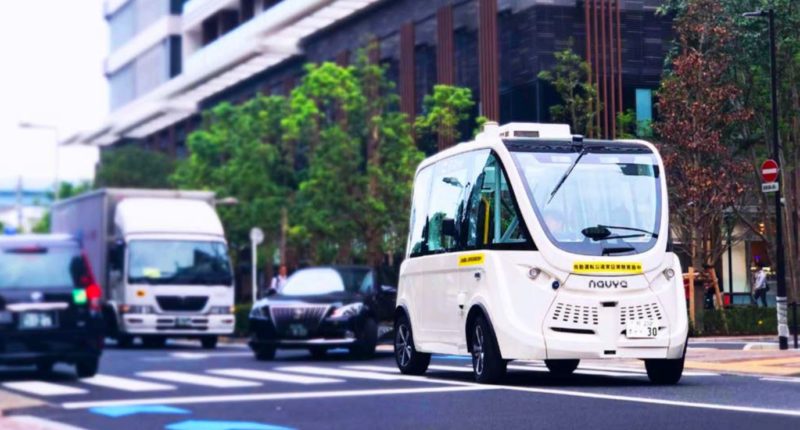Japanese tech behemoth Softbank is pushing itself once again, to be at the forefront in development of self-driving buses in Japan. The group unveiled a plan to carry passengers starting from April this year, according to a report in Nikkei.
These buses are planned to be tested on a 2.5-kilometer route in Sakai, a town located outside Tokyo. Sakai plans to offer the service to passengers for free and has allocated a $4.7million budget for the five-year project. SB drive, a unit of Softbank’s mobile subsidiary, has developed an integrated monitoring software. This software will be used by first 11 passenger buses being provided by Navya(a French startup).
Yuki Saji, CEO SB Drive, stated that the self-driving buses will provide practical conveniences instead of cutting-edge technology. He called them ‘horizontal elevators’ that have a fixed route and move at regular intervals.
The Softbank group modified their Navya vehicles to meet Japan’s safety requirements, thus getting an exemption for driving on public roads. Some safety features include a seat for a crew member, who can control the car in case of Emergency. Japanese law doesn’t allow autonomous vehicles to operate on public roads.
Softbank claims that these buses can drive without any human intervention, which makes it a level 4 (High Automation) automation tech product. Although, due to restrictions, it can only jump to level 2 (Partial Automation) technology with assisted driver support.
Self-driving Buses can solve a major problem for Japan, it suffers from a chronic shortage of drivers due to a rapidly aging population. Also, the passengers are declining in rural areas that means these people prefer their own vehicles instead of depending on public transport.
Japan can be a key target for Navya’s vehicles as the local governments are willing to finance self-driving cars due to shortage of drivers and other demographic challenges. Navya already operates its vehicles on open roads in 18 countries.
Softbank’s financial might largely comes from its investments in companies outside of Japan. For example, the company continues to hold a sizeable chunk in Alibaba, a company in which it invested at an extremely early stage. The Alibaba IPO resulted in record gains for Softbank. Additionally, its domestic mobile unit helps in generating huge capitals due to interest payments.
The Tech Portal is published by Blue Box Media Private Limited. Our investors have no influence over our reporting. Read our full Ownership and Funding Disclosure →






